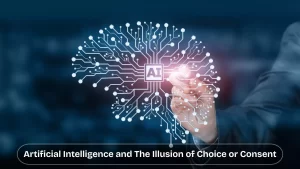Even though there are newer degrees such as data science and artificial intelligence that have become popular in recent years, an MCA degree still provides a strong foundation for those looking to pursue a career in IT. An MCA degree can open up opportunities in software engineering, web development, database management, and more.
MCA courses you will learn in SMS Varanasi, include:

- Emerging Information Technologies: This course introduces students to the latest technologies used in information technology. Students will learn about emerging topics such as augmented reality, virtual reality and blockchain technology and how they can be used in practical applications.
- Problem-Solving using C: This course teaches problem-solving techniques using the C programming language. Students will learn the fundamentals of computer programming such as data types, functions, control structures and debugging. Understanding these concepts can help students develop efficient algorithms for solving various computational problems encountered in IT careers.
- Principles of Management & Communication: This course teaches students the fundamentals of management and communication, which are essential for success in the IT industry. It covers topics such as leadership, decision-making, communication strategies, and team dynamics.
- Discrete Mathematics: This course introduces students to the fundamentals of discrete mathematics, which is a key component of computer science. Topics include logic, set theory, probability theory, graph theory and combinatorics. This course can help students develop problem-solving skills that are necessary for a successful career in IT.
- Computer Organization: This course provides an introduction to computer architecture and organization. Students will learn about memory systems, instruction sets, processor design and control unit design. Understanding these concepts can help students gain a better understanding of how computers work and how they can be used to solve complex problems.
- Theory of Automata & Formal Languages: This course covers the theoretical foundations of automata and formal languages. Topics include finite automata, regular expressions, context-free grammars and Turing machines. Understanding these concepts can help students develop algorithms for solving complex problems in the field of computer science.
- Object-Oriented Programming: Object-oriented programming (OOP) is a programming language model that allows developers to create objects that contain data and methods. It provides students with the skills to build robust, maintainable applications.
- Operating Systems: Operating systems are software that manages computer hardware and provide services for programs. They teach students how to design, develop, and maintain operating systems for various types of computing platforms.
- Database Management Systems: Database management systems (DBMS) are software used to store, organize, and manage data. Students learn how to design and implement efficient database solutions for various types of applications.
- Data Structures using C: Data structures using C teaches students how to use the C programming language to create efficient data structures such as trees, heaps, and hash tables. This course teaches students how to develop effective data storage solutions for various types of applications.
- Design & Analysis of Algorithms: Design & analysis of algorithms teaches students how to design and analyze algorithms for solving complex problems efficiently. In this course, students learn how to design efficient algorithms for various types of applications.
- Web Technologies: Web technologies teach students how to develop web applications using HTML, CSS, JavaScript, PHP, etc. Students learn how to create dynamic web pages and interactive websites through this course.
- Computer Networks: Computer networks teach students about network protocols such as TCP/IP and Ethernet, as well as network security measures such as firewalls and encryption techniques. Students learn how to design secure networks for various types of organizations.
- Artificial Intelligence: Artificial intelligence teaches students about machine learning algorithms such as neural networks and deep learning models. Students learn how to develop intelligent systems that can process large amounts of data quickly and accurately.
- Software Engineering: This course covers the principles and techniques used in software engineering. Topics include software development process models, requirements engineering, software design patterns and testing methods. Learning these concepts can help students create efficient software solutions that meet customer needs effectively.
- Cloud Computing: This course introduces students to cloud computing technologies such as Amazon Web Services (AWS), Microsoft Azure and Google Cloud Platform (GCP). Students will learn about cloud architectures, deployment models, security considerations and cost optimization techniques for deploying applications on the cloud platform.
- Data Warehousing & Data Mining: This course introduces students to data warehousing and data mining techniques used in business intelligence applications such as customer segmentation analysis or fraud detection systems. Students will learn about data warehouse architectures, ETL processes and data mining algorithms such as association rules or clustering algorithms that can be used to extract useful insights from large datasets.
- Cryptography & Network Security: This course teaches students how to protect data and networks from malicious attacks. Students can use this knowledge to make a career in IT security.
- Big Data: Big Data courses teach students how to collect, store, and analyze large amounts of data. Students can use this knowledge to make a career in data science or analytics.
- Data Analytics: In Data Analytics, students learn how to interpret and visualize data for better decision-making. Students can use this knowledge to make a career in business intelligence or analytics.
- Privacy & Security in Online Social Media: These courses teach students how to protect user data and privacy on social media platforms. Students can use this knowledge to make a career in online security or privacy protection.
- Block-Chain Architecture: Here, students learn how to teach students how to design and implement distributed ledger technology solutions for secure data storage and transactions. Students can use this knowledge to make a career in blockchain development or architecture.
- Data Science: Data Science allows one to extract meaningful insights from large datasets using machine learning algorithms and statistical methods. Students can use this knowledge to make a career in data science or analytics.
- Mobile Computing: Here, students learn about the technologies used for developing mobile applications such as Android, iOS, Windows Phone, etc. Students can use this knowledge to make a career in mobile app development or software engineering.
- Internet of Things: IoT courses teach students about the technologies used for connecting devices over the internet such as sensors, actuators, etc., and building intelligent systems with them. Students can use this knowledge to make a career in IoT development or embedded systems engineering.
- Modelling & Simulation: Modelling & Simulation courses teach students about the techniques used for creating virtual models of real-world systems such as computer simulations, 3D modelling, etc., and analyzing their behaviour under different conditions. Students can use this knowledge to make a career in simulation engineering or game development.
- Machine Learning: ML courses teach students about the algorithms used for training computers with large datasets so that they are able to recognize patterns and generate predictions without explicit programming instructions from humans. Students can use this knowledge to make a career in machine learning engineering or artificial intelligence research.

As you can see, the courses covered in MCA are still relevant today, and students can use the knowledge they gain from these courses to make a career in various fields related to data science, analytics, security, privacy, mobile computing, internet of things, modelling and simulation, machine learning etc.
Post Views: 240




